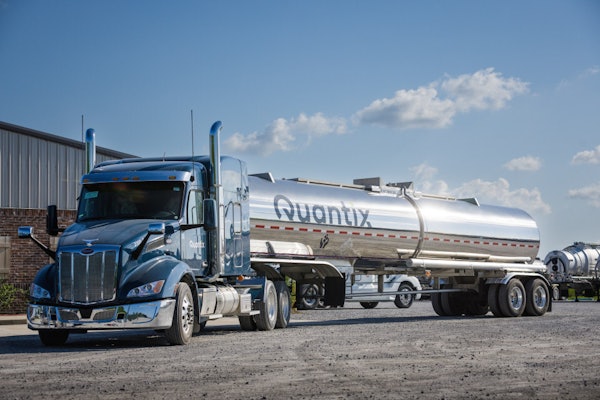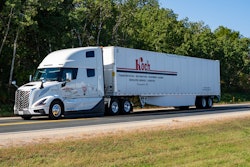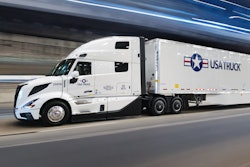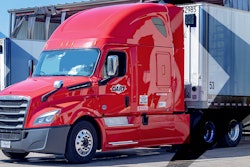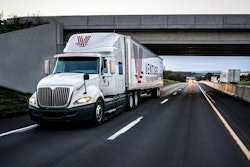Long Beach Harbor Commissioners on Monday, Nov. 5, voted to ban the oldest, dirtiest trucks from operating at the Port of Long Beach, through approval of a port tariff that will gradually limit access to all but the cleanest vehicles.
The tariff, which matches one enacted last week by the Port of Los Angeles, will cut air pollution from short-haul (or “drayage”) trucks working in the harbor by nearly 80 percent within five years. The joint initiative eventually will ban pre-2007 diesel rigs from accessing waterfront terminals by 2012, with exemptions for emergency vehicles, yard hostlers, fuel trucks and auto transports.
The tariff is based on a progressive ban of the oldest trucks. The schedule is:
“With this clean truck program, the Port of Long Beach has taken a major step forward for clean air,” says Mario Cordero, Long Beach Harbor Commission president.
The tariff’s ban will rely on an electronic identification system such as RFID – Radio Frequency Identification. RFID tags or similar technology will be placed in trucks, and tag readers will be installed at Port terminal gates to ensure access only for clean trucks.
“The Commission’s action will allow the Port of Long Beach to achieve steady progress in the effort to reduce air pollution,” says Richard D. Steinke, Port of Long Beach executive director. “It’s a sensible plan that will help to aggressively clean the air while continuing the efficient movement of goods in and out of the Port.”
The initiative doesn’t address how fleet turnover – estimated to cost $2 billion or more – will be funded. But Geraldine Knatz, executive director of the Port of Los Angeles, told the Los Angeles Times the board hoped to approve the plan’s remaining components – a concession program to administer truck operations, a cargo fee to fund the plan’s requirements, a mechanism to fund truck replacements, and a transportation workers’ security system – on Dec. 14.
The L.A.-Long Beach port complex is the largest in the United States. Currently, 1,300 motor carriers and 16,000-plus independent owner-operator drivers provide intermodal drayage services to these facilities, through which moves more than 40 percent of all containerized trade in the nation.

